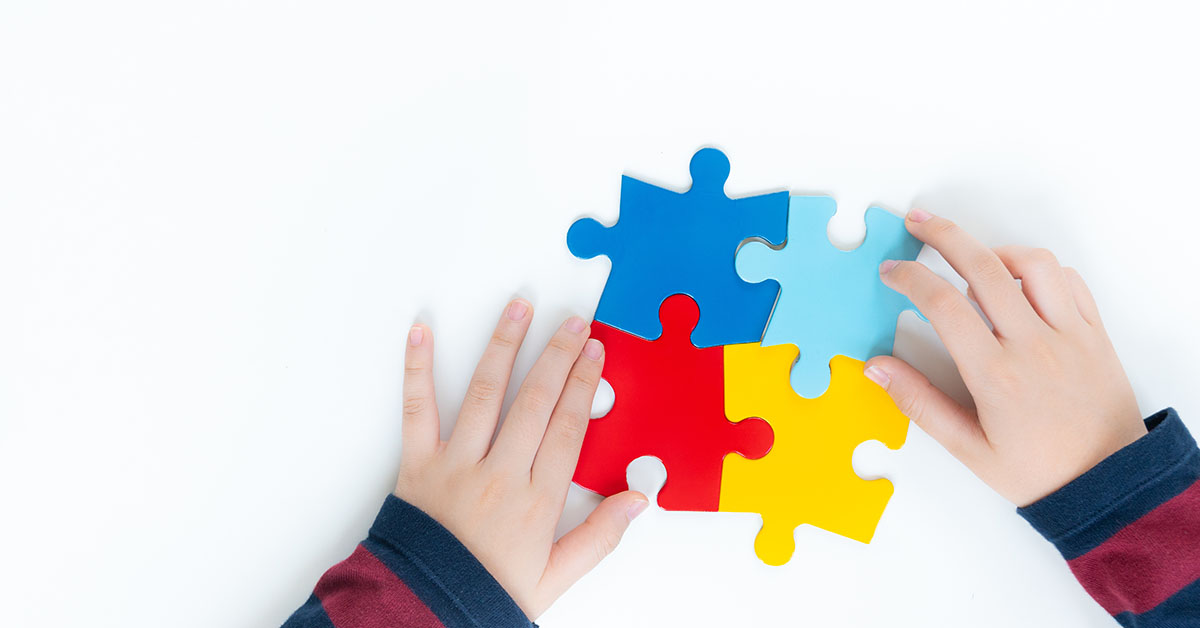Recognizing Autism: A Comprehensive Guide to Symptoms and indications
Autism Spectrum Condition (ASD) encompasses a large range of qualities that can dramatically impact a person's social interactions and day-to-day functioning. Identifying the symptoms and signs, such as challenges with eye get in touch with, social communication problems, and sensory level of sensitivities, is vital for early intervention. Recognizing these subtleties not only help caretakers and educators in providing proper support however additionally fosters a much more comprehensive setting for individuals with ASD. As we check out the complexities of autism, it comes to be important to think about just how these signs manifest in different ways throughout the spectrum and what ramifications they hold for efficient treatment strategies.
Summary of Autism Spectrum Condition
Defining Autism Spectrum Disorder (ASD) involves identifying it as a complex neurodevelopmental condition characterized by a variety of challenges in social communication, interaction, and behavior patterns. The term "spectrum" shows the large variability in symptoms and their severity, which can differ significantly from one person to an additional. ASD commonly shows up in very early childhood, although some individuals might not obtain a diagnosis until later on in life.
Variables affecting the advancement of ASD include hereditary tendencies and environmental factors, although the specific causes remain under examination. Diagnosis frequently depends on behavioral analyses, as there are no clear-cut medical examinations for ASD. Early intervention is essential and can significantly boost outcomes, concentrating on improving interaction skills, social interactions, and flexible behaviors.
People with ASD may additionally display unique staminas, such as outstanding attention to information or particular locations of know-how. Comprehending the complex nature of ASD is vital for fostering an inclusive setting that fits neurodiversity. Proceeded study is important for creating effective treatments and support group, allowing people with ASD to thrive and meet their potential within society.
Usual Indications of Autism
Recognizing the typical indicators of Autism Range Disorder (ASD) is crucial for very early identification and intervention. These indications can differ widely in severity and presentation, yet particular qualities are often observed in people with ASD.
Among the most common indications is a significant trouble in preserving and developing eye call. Individuals may likewise display minimal passion in social interactions and show a preference for solitary play. Repeated habits, such as hand-flapping, shaking, or rotating things, often emerge early in childhood. Furthermore, some children might create rigorous regimens and come to be troubled if these regimens are interfered with.
Sensory sensitivities are also common; people might panic or underreact to sensory stimuli, such as lights, audios, or textures. autism. Language growth can be atypical, with some children exhibiting postponed speech or using language in unusual means, consisting of echolalia-- repeating phrases or sentences listened to somewhere else
It is vital to note that not every individual with ASD will certainly show all these indications, and the degree of these actions can differ significantly. Early acknowledgment enables timely assistance and resources, enhancing the lifestyle for those on the range.
Social Interaction Challenges
Social interaction difficulties are a hallmark of Autism Range Disorder (ASD), influencing an individual's capacity to engage effectively with others. These difficulties can show up in different ways, consisting of challenges in starting and maintaining discussions, understanding social hints, and responding properly in social communications.
Individuals with ASD might deal with nonverbal interaction, such as eye contact, facial expressions, and body movement. This can result in misconceptions, as their communicative intent may not be properly analyzed by others. Additionally, they might locate it difficult to comprehend the subtleties of tone and context, which are crucial for effective interaction.
In team setups, people with ASD may feel overloaded find out here and might not know exactly how to sign up with in discussions (autism). They might also display irregular conversational patterns, such as monologuing concerning particular rate of interests without identifying social reciprocity
Moreover, these difficulties can lead to social seclusion or troubles in creating relationships, as peers might misinterpret their behavior or communication style. Comprehending these social interaction obstacles is crucial for fostering supportive atmospheres that Go Here promote social abilities development and enhance the quality of interactions for individuals on the autism spectrum.
Sensory Reactions and sensitivities
Lots of individuals with Autism Range Condition (ASD) experience heightened sensory level of sensitivities that can significantly influence their everyday lives. A person with ASD might discover day-to-day sounds, such as a vacuum cleaner or crowded settings, overwhelmingly traumatic, leading to stress and anxiety or meltdowns.
Sensory processing distinctions in people with ASD can additionally impact their capacity to take part in social interactions and regular activities. A youngster that is sensitive to touch might resist physical love or avoid specific apparel materials. Conversely, a preference for specific appearances or tastes can limit nutritional alternatives and produce obstacles during mealtimes.
Recognizing these sensory sensitivities is vital for identifying the one-of-a-kind experiences of individuals with ASD. Understanding of their sensory accounts can cultivate far better interaction and assistance approaches, creating an environment that accommodates their needs and improves their high quality of life. Eventually, recognizing sensory level of sensitivities is an essential element of comprehending the wider spectrum of autism.

Supporting People With Autism
Effective support for individuals with Autism Range Condition (ASD) is important for improving their general health and promoting freedom. Assistance techniques must be customized to fulfill the distinct requirements of each person, considering their difficulties and toughness.

Social abilities training can additionally play a pivotal role. autism. Engaging people in group activities or role-playing situations can improve their capability to browse social communications. Furthermore, it is essential to educate family members, caregivers, and peers about ASD to cultivate a inclusive and supportive community
Conclusion
To conclude, a comprehensive understanding of Autism Spectrum Disorder is essential for news recognizing its signs and symptoms. Early recognition of common qualities, such as social communication challenges and sensory level of sensitivities, makes it possible for caretakers and teachers to apply reliable interventions. By fostering improved communication and social abilities, individuals with autism can browse their atmospheres much more successfully. Inevitably, boosted understanding and support can significantly boost the high quality of life for those affected by ASD.
Autism Range Condition (ASD) encompasses a large range of features that can substantially impact an individual's social communications and everyday performance.Individuals with ASD might struggle with nonverbal interaction, such as eye contact, face expressions, and body language.Many people with Autism Spectrum Condition (ASD) experience enhanced sensory sensitivities that can dramatically impact their everyday lives.Sensory handling differences in people with ASD can also impact their capacity to engage in routine tasks and social interactions.Comprehending these sensory level of sensitivities is important for identifying the unique experiences of individuals with ASD.